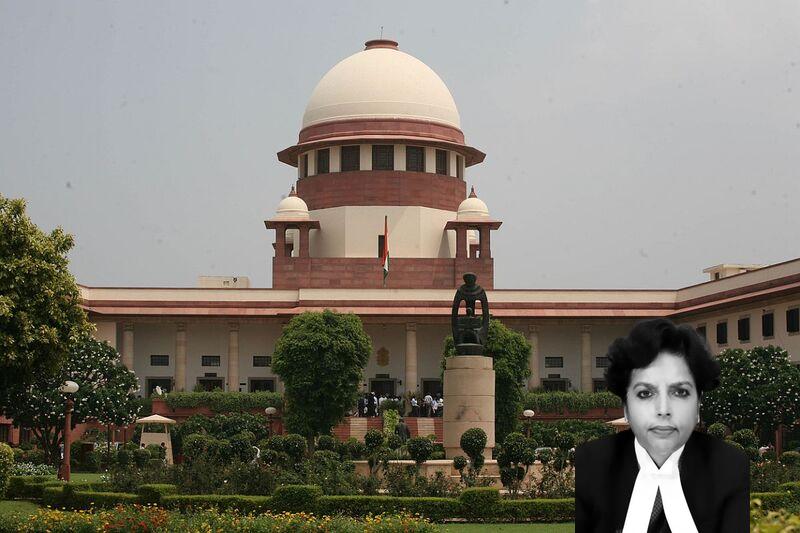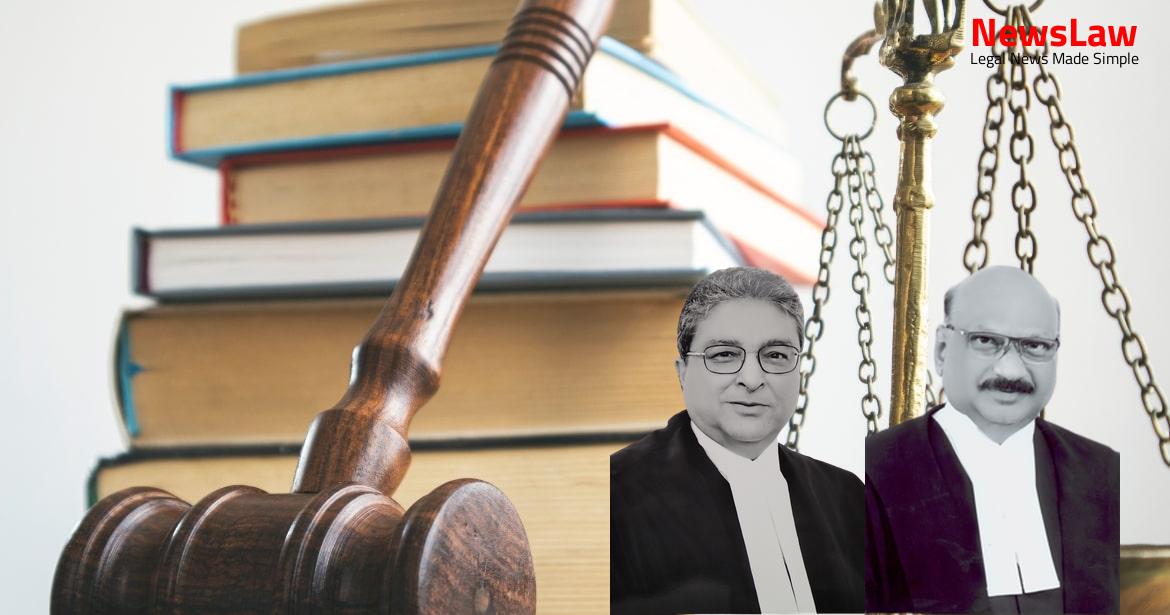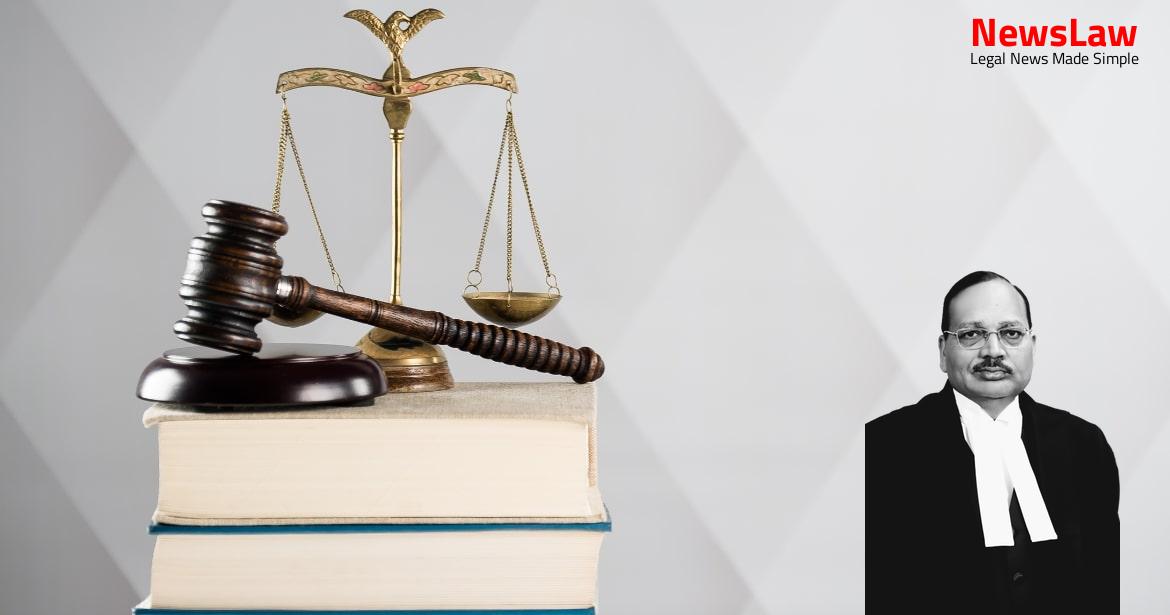3.1 In May, 2015, a criminal case was registered against the respondent who was arrayed as an accused in a Special Sessions Case in the Court of the First Additional Page 2 of 18 Sessions Judge, Ashok Nagar (MP). The case set up by the prosecution against the respondent was that on 14 February, 2015, he along with the other co-accused had wrongfully restrained the complainant therein (a minor) and tried to outrage her modesty. As the other offences for which the respondent was charged, were non-compoundable, the case continued but because the prosecutrix and the witnesses cited by the prosecution turned hostile, the trial Court passed an order, acquitting the respondent of the charges framed under Section 354(D) of the IPC and Section 11 (D)/12 of the POCSO Act. 3.4 On scrutinizing his verification form, the appellant No 3 – Superintendent of Police, Ujjain addressed a communication dated 24 August, 2017 to the respondent informing him that he was found to be unfit for being recruited. You have been found to be acquitted in Crime No Page 4 of 18 64/15 Sections 341, 354-D, 323, 34 IPC and 7/8 POCSO Act, Section 354 (D) IPC and Section 11 (D)/12 Protection of Children from Sexual Offences, 2012 registered in the police station Isagarh District Ashok Nagar because the offence was not proved ‘beyond doubt In your character verification. Vide judgement dated 17 November, 2017, the learned Single Judge dismissed the writ petition filed by the respondent with the following observations: “From perusal of the impugned order dated 24.08.2017 (Annexure P/1) it appears that in the light of the judgment rendered by the Hon’ble Apex Court in the case of Avtar Singh Vs.
The aforesaid order was challenged by the respondent in an appeal filed under Section 2(1) of the Madhya Pradesh Uchcha Nyayalaya (Khand Nyayapeeth Ko Appeal) Page 5 of 18 Adhiniyam, 2005 which resulted in passing of the impugned judgment whereby the Division Bench quashed and set aside the order dated 24 August, 2017, passed by the Competent Authority and the order dated 17 November, 2017, passed by the learned Single Judge and remanded the matter back to the Competent Authority to pass a fresh order in the facts of the instant case. Lastly, learned counsel submitted that even though a compromise was entered into between the respondent and the complainant in the criminal case and he was acquitted on being extended benefit of doubt, it still lies within the domain of the employer to decide as to whether the respondent would be a suitable candidate for Page 6 of 18 appointment to the post, considering the fact that the offence for which he was charged involved moral turpitude. Savitri Pandey, learned counsel for the respondent, submitted that the learned Single Judge of the High Court has committed an error in dismissing the writ petition filed by the respondent in view of the fact that while filling up the verification form, he had furnished all the requisite information and duly disclosed the criminal case in which he was involved and its final outcome. It is not in dispute that in the verification form required to be filled up by the respondent, he had made a disclosure of the case registered against him in the year 2015 and the fact that he had faced a trial in the said case that ended in his acquittal vide judgement dated 26 October, 2015. High Court of M.P and Another observed that in a case like the present one where there was no other criminal case pending against the respondent, except for the one in which he had been Page 8 of 18 acquitted and the Department had not undertaken a deeper look at the respondent’s past, it was a fit case for relegating the matter to the appellants for fresh consideration.
A candidate who makes a false declaration or suppresses material information or furnishes half–baked information which may not be the whole truth, can be visited with adverse consequences to the point of his exclusion even though he may have qualified in the entire selection process, based on the said falsity/suppression. The aforesaid conflicting opinions were finally settled by a three-Judges Bench of this Court in Avtar Singh (supra) whereafter examining different Page 9 of 18 views expressed by Benches of this Court from time to time, broad guidelines were laid down as to the yardstick to be applied for verification of disclosures made by a candidate to the employer for deciding as to whether the incumbent would be fit for appointment or not. There may be situation when person has been convicted of an offence before filling verification form or case is pending and information regarding it has been suppressed, whether employer should wait till outcome of pending criminal case to take a decision or in case when action has been initiated there is already conclusion of criminal case resulting in conviction/acquittal as the case may be. For lower posts which are not sensitive, nature of duties, impact of suppression on suitability has to be considered by authorities concerned considering post/nature of duties/services and power has to be exercised on due consideration of various aspects. In case there is suppression or false information of involvement in a criminal case where conviction or acquittal had already been recorded before filling of the application/verification form and such fact later comes to knowledge of employer, any of the following recourses appropriate to the case may be adopted: 38.4.1. If acquittal had already been recorded in a case involving moral turpitude or offence of heinous/serious nature, on technical ground and it is not a case of clean acquittal, or benefit of reasonable doubt has been given, the employer may consider all relevant facts available as to antecedents, and may take appropriate decision as to the continuance of the employee. In case when fact has been truthfully declared in character verification form regarding pendency of a criminal case of trivial nature, employer, in facts and circumstances of the case, in its discretion, may appoint the candidate subject to decision of such case.
However, in such cases action cannot be taken on basis of suppression or submitting false information as to a fact which was not even asked for. Union of India and Others, where this Court was called upon to examine the purpose of seeking information with respect to the antecedents of a candidate, it was observed that the same were essential so as to ascertain the Page 12 of 18 suitability for the post and the disclosures made in the verification form relating to the character and antecedents of the candidate can result in the following consequences: “15. (b) On the other hand, if the employer finds that the criminal case disclosed by the declarant related to offences which were technical, or of a nature that would not affect the declarant’s fitness for employment, or where the declarant had been honourably acquitted and exonerated, the employer may ignore the fact that the declarant had been prosecuted in a criminal case and proceed to appoint him or continue him in employment. (c) Where the declarant has answered the questions in the negative and on verification it is found that the answers were false, the employer may refuse to employ the declarant (or discharge him, if already employed), even if the declarant had been cleared of the charges or is acquitted. The reasons offered for declining him an appointment were that the candidate selected is required to maintain law and order of the State and it was considered improper to appoint a person having a criminal record. Parvez Khan ; Pradeep Kumar (supra) ; and Avatar Singh (supra), the following observations were made :– 13. Abhijit Page 14 of 18 Singh Pawar, 2015 SCC OnLine MP 7517] and dismiss Writ Petition No. After distilling the law on appointments obtained by fraud or misrepresentation/by suppression of material facts, this Court proceeded to quash and set aside the order passed by the learned Single Judge and upheld the order passed by the Division Bench of the High Court, directing reinstatement of the respondent – employee and held that said decision was unsustainable in view of the fact that the employee had not disclosed/suppressed material facts and had filed a false declaration.
Therefore, in such a situation, where the employer feels that an employee who at the initial stage itself has made a false statement and/or not disclosed the material facts and/or suppressed the material facts and therefore he cannot be continued in service because such an employee cannot be relied upon even in future, the employer cannot be forced to continue such an employee. At the cost of repetition, it is observed and as observed hereinabove in catena of decision such an employee cannot claim the appointment and/or continue to be in service as a matter of right.” 15. It is evident from the facts narrated that after the chargesheet was filed, the respondent had arrived at a compromise with the complainant and filed an application under Section 320 of the CrPC, based on which the offence under Section 341 IPC was compounded. This is a classic example of the situation contemplated in para 38.4.3 of Avatar Singh (supra) where the charges framed against the respondent herein involved moral turpitude and though he was acquitted on the prosecution witnesses having turned hostile, but given the facts and circumstances of the case which led to his acquittal, we are of the view that the appellant – State Government was well within its right to exercise its discretion against the respondent and terminate his services on the ground that he was unfit for appointment in the police department. The aforesaid aspects were rightly factored in by the appellant – State Government while issuing the communication dated 24 August, 2017 and declaring that the respondent was unfit for appointment to the said post.



